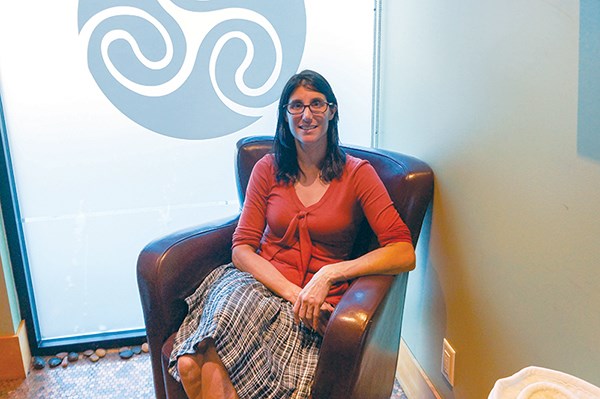Victims of sexual assault in the Sea to Sky Corridor might finally be able to have a forensic exam done close to home.
A year after district councillor Susan Chapelle brought attention to the lack of rape kits in the corridor by going public in The Squamish Chief with her story of being raped when she was 19, Chapelle has once again publicly been calling for the kits. This time, authorities seem to be listening.
In the wake of recent coverage, Minister of Health Terry Lake said in an interview on Oct. 13 that talks were ongoing with Vancouver Coastal Health (VCH) to get medical professionals trained to administer the forensic exams in Squamish.
“Minister Lake spoke with the CEO of Vancouver Coastal Health on this topic on Tuesday morning and was assured that they are continuing discussions to find solutions for the Sea to Sky Corridor that we hope could lead to the provision of this service closer to home,” read the statement from the Ministry of Health to The Squamish Chief.
A spokesman for Vancouver Coastal Health, however, told the Squamish Chief there wasn’t anything new to report, “but we do continue to work toward a solution.”
A “rape kit” refers to a sexual assault forensic exam. Specially trained medical staff extract evidence – fibres, hairs, semen – from the woman’s body, according to the international association of forensic nurses. This exam can take several hours to complete. The forensic nurse also can provide medical testimony in court and consult with legal authorities.
Chapelle said meetings are happening this week among doctors, nurses and others to figure out how to keep the momentum to ensure sexual victims can get tested in Squamish. Currently, victims have to travel to the city for testing.
Chapelle has been advocating for more than two years for the training and equipment needed for the kits in Squamish. She is frustrated to learn how many other women have been raped.
“The hardest thing for me has been, ‘Me too,’” she said, explaining that wherever she goes, women tell her their secrets of rape and trauma.
Most women don’t report the crimes to police, she said.
“One in three women are raped and six per cent report. How do you deal with a statistic like that?”
Chapelle said, on average, about 53 women are sexually assaulted in the Sea to Sky Corridor each year.
Squamish RCMP Staff. Sgt. Brian Cumming said he could not immediately confirm the number of sexual assaults, but he said the detachment would welcome the kits.
“I do not disagree that this is a tool we would like to have readily available to us, and we would like to have it available locally to minimize the additional trauma and inconvenience to a victim of sexual assault of having to travel to Vancouver General Hospital to have the process undertaken,” said Cumming.
Shannon Cooley Herdman of the Howe Sound Women’s Centre said the corridor is at an interesting crossroads in terms of sexual assault awareness.
“Pubic awareness has reached a certain critical mass, and there is a more public acceptance that this is an issue that needs to be seriously addressed and that it’s kind of obvious that if women have to travel one to four hours to get appropriate sexual assault services, that it is a barrier not only to her own health care possibly but in terms of getting attached to appropriate resources after presenting at the ER, but a barrier to justice at all.”
Chapelle said she recognizes in a cost-benefit analysis, not a huge number of people require the test, but that type of analysis does not stop other crimes from being dealt with in rural communities. “I imagine people don’t get stabbed every day, but we have the resources to deal with that crime. But when you are raped and it is a crime, you don’t have resources to deal with that,” she said.
“If [the exam] happens immediately and you fund that health care immediately, the resources are going to be saved later on when that woman goes back to her family and isn’t in trauma. You are not [dealing] with child counseling and you are not dealing with marriage counseling and you aren’t dealing with suicide, and you aren’t dealing with all the other aspects.”
Chapelle said if the province and health authority don’t have the resources to fund exams in Squamish, she and other advocates would like to see a breakdown of costs so that community solutions could be found for funding.
“It is not necessarily VCH funding that we want. We just want the numbers,” she said, adding she has been unable to get a clear understanding of the exam costs. “We understand it is a complex financial issue that there is limited resources. We know that, but we can’t even find out what the basic numbers are to fund it ourselves.”
She said ultimately, getting rape kits is just a first step in getting to the root of a larger societal problem. “It is a big conversation when you think: What resources does a community need to bring women out of violent relationships and trauma and rape and the things that happen – how do we prevent it?”



